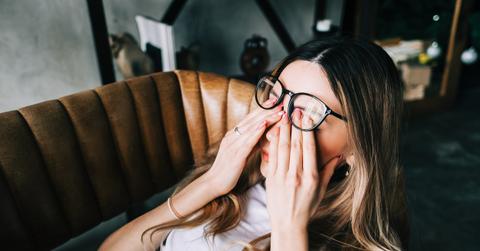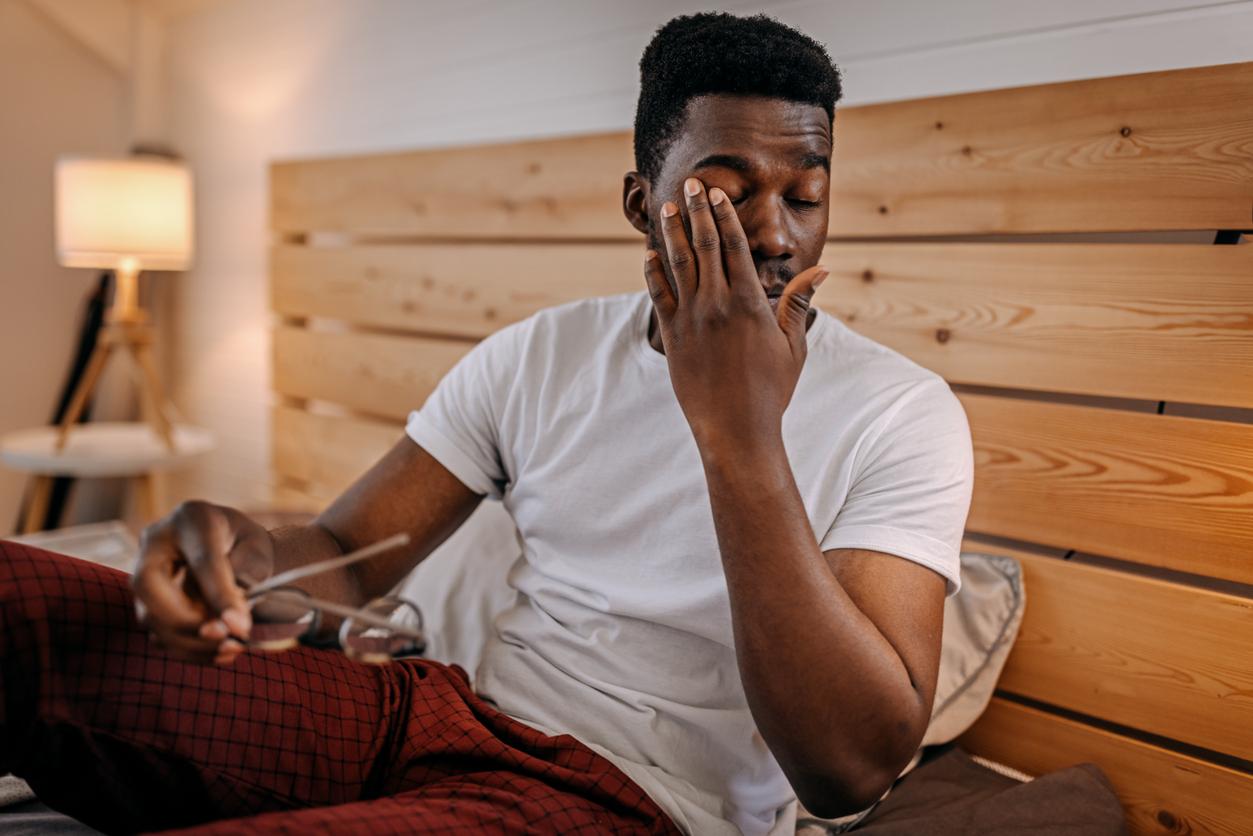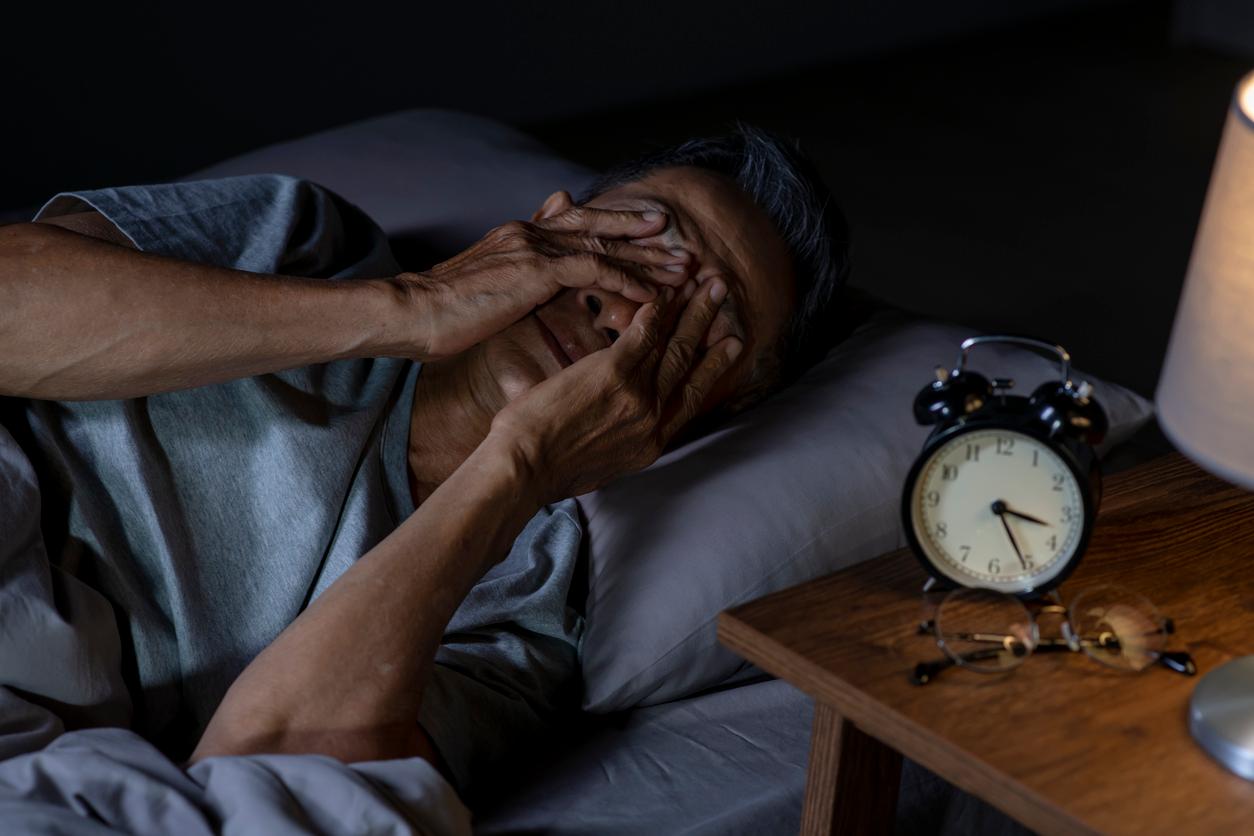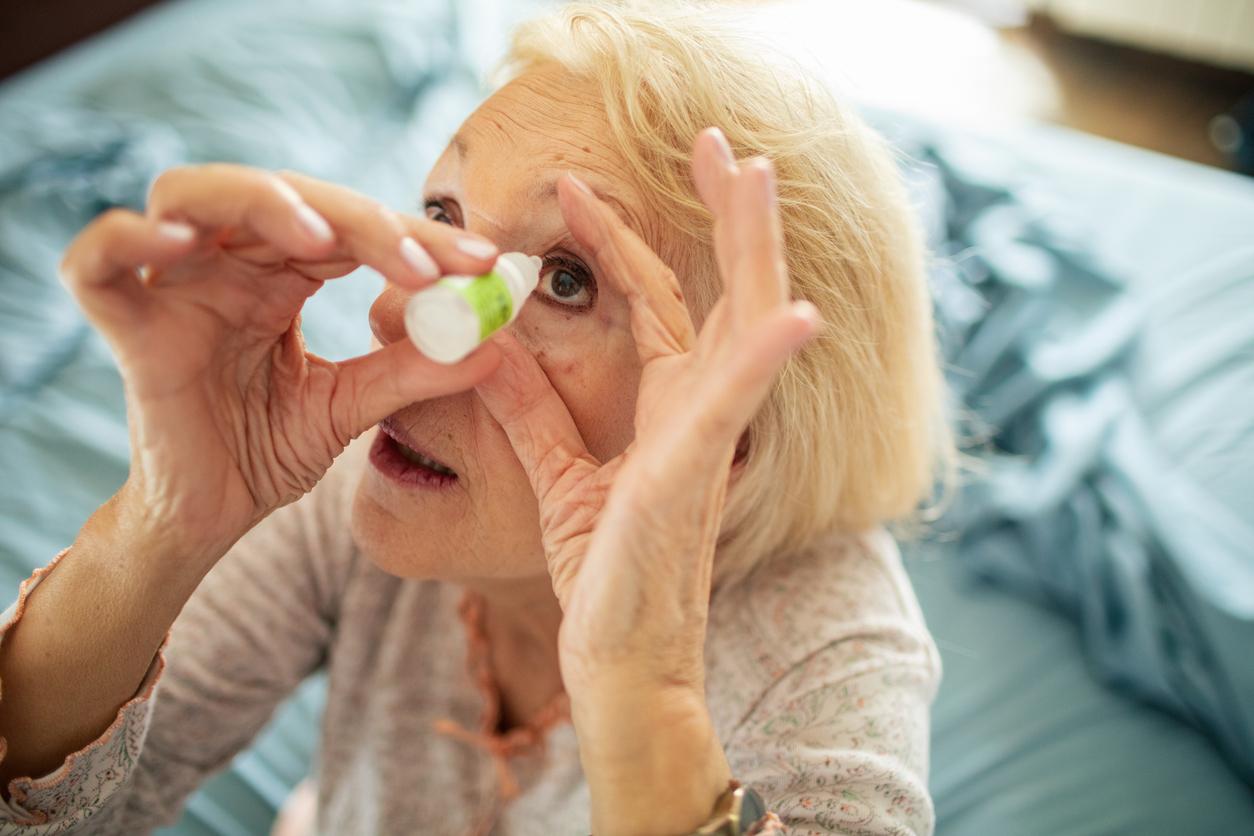Do You Feel Pain in Your Eyes in the Morning? Here's Why, According to Doctors
An optometrist can examine your eyes to ensure this isn't a sign of something more dire.
Published April 19 2024, 12:38 p.m. ET

If your eyes bother you when you wake up, from redness and bags under the eyes to unwanted twitching and pain in or around your eyes, you're not alone. The human experience doesn't always resemble a Disney movie, and birds singing as you gently awaken is more often like a killer headache causing unbearable eye pain.
If you feel eye pain when you wake up, keep reading to learn more about what this might mean and how you can ensure your safety and health.

Why do my eyes hurt when I wake up?
It can be easy to assume the worst when your eyes hurt when you wake up, but it's best to resist the temptation to catastrophize. According to prescription glasses retailer Warby Parker, eye pain isn't always a harbinger of something serious.
According to Warby Parker, some of the typical and relatively less dire causes of eye pain include dry or strained eyes, headaches, and the need to adjust your contact usage routine or update your prescription.
The American Academy of Ophthalmology also suggests that dry eyes can lead to redness and light sensitivity in the morning.
The Texas-based River Place Vision Center agrees that dry eyes can cause an itchy or painful sensation in the eyes. Some medications, one's age, and the environment in which they sleep (including excess heat, the use of a ceiling fan, or allergens) can contribute.
On the more serious end of the spectrum, having the flu, neuropathy, or an infection may contribute to eye pain, according to Mount Sinai.

Why do I wake up with pressure behind my eyes?
Those who awaken with pressure behind the eyes know how debilitating it can be to their best-laid plans for the day. According to the Optometrists Network, some common causes of this type of pain include migraines, sinus infections, toothache, or a facial injury.
While pain relief medication can temporarily reduce this sensation of pain, it is important to consult with a trusted medical professional to ensure this pain isn't symptomatic of something even more serious.
According to the Optometrists Network, eye pain can be caused by various conditions. These include swelling of the optic nerve, which can be a sign of serious issues, or Grave's disease, a condition linked to thyroid problems.
If you are concerned that the sensation of pressure behind your eyes may indicate glaucoma, Healthline suggests that a pressure buildup causes the disease. Glaucoma doesn't cause that sensation itself.
Sinus problems may be the culprit if you feel pressure behind your eyes. A sinus infection causes facial swelling, and the associated pressure behind the eyes will likely cause pain.
Be sure to head to an ear, nose, and throat doctor to discuss the pain you're feeling. The physician then may recommend additional specialists to pinpoint the root cause of your pain.

Here are a few tips to prevent waking up with dry or sore eyes.
According to Niagara Falls-based practice Eye Wellness, there are many ways to help address dry or sore eyes.
One such tip includes gently soaking a cloth in warm water and folding it across your eyes for 10 to 15 minutes. You should also ensure you're staying adequately hydrated throughout the day and before bed, using a humidifier in dryer climates and during winter, and considering an air filter to mitigate allergens.
The popular 20-20-20 rule involves taking a 20-second respite every 20 minutes using an electronic device and directing your vision at least 20 feet away. Finally, Eye Wellness recommends an eyelid scrub to keep the area around your eyes clean, and consult with a doctor for additional support if needed.